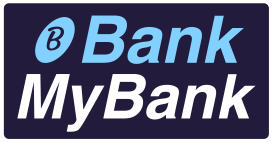Prepaid debit cards from American Express (Amex) with fee waivers, no credit checks, and online account access are known as Serve cards. One of the three Serve cards is effectively a checking account at a conventional brick-and-mortar bank, with FDIC protection and additional features that help you manage your funds. With a Serve card, you may make purchases with money you’ve loaded into your account, avoiding debt and overdraft fees because you’re using your own funds.
Read More: What is Auto Sweep Facility and its Benefits?
Benefits of the Cards
With an FDIC-insured Serve account, you can do a lot more than simply make purchases; it also provides free online bill payment, quick cash transfers, and ATM withdrawals at over 30,000 MoneyPass ATMs. A Serve card also entitles you to free early direct deposit. If your company sends payroll data on time, Amex may credit your account one to two days prior to your planned payment date, giving you a few more days to access your earnings.
Using a mobile device, you can quickly deposit checks written to you into your Serve account—no need to stop by a bank or an ATM. You can also set up direct deposit, which completely automates the procedure and helps reduce fees. When you need cash, Walmart locations let you withdraw a lot more than most ATMs allow in a single transaction. There will be fees associated with cash pickups, but you can also send money for someone else to pick up your money at their neighborhood Walmart.
How to Add Funds
You can add money to your Serve account in four different ways: direct deposit, bank transfer, mobile deposit, or store-based cash deposits. Employers can electronically transfer your check if you have direct deposit. The regular Serve card provides a fee waiver for direct deposits, making it the best choice if you want to keep expenses to a minimum. You can also make free electronic transfers to your card from most banks.
If you need to deposit cash, you can utilize this program at any supermarket, convenience store, or pharmacy in the nation, though fees may apply depending on the Serve card type you use. Mobile deposits are just as convenient, but you might need to wait up to 10 days or pay a small fee before you can access your money.
Fees
Setting up a Serve account online is free, however, doing so in person may cost you up to $3.95. It will cost $5 to get a new card if you need one. Unless you get a direct deposit of at least $500 per month, the monthly charge is $6.95. You could be charged up to $2.50 in withdrawal fees and $0.75 for each refused ATM transaction if you can’t find a MoneyPass ATM.
Read More: New Hyundai Creta receives 5 stars at ASEAN NCAP.
type of cards
The Serve regular card, the Serve free reloads, and the Serve cash back are the three different types of Serve cards. A low-cost prepaid card that can be used to pay bills, make purchases, and get paid is the most popular and widely used Serve card. For W-2 workers and independent contractors who are frequently paid by check or with electronic deposits, this can be the best choice.
For people who don’t have a bank account and get their paychecks mostly in cash, the Serve FREE card, which allows free cash deposits with a monthly cost of $6.95, makes sense. The monthly cost for the Cash Back card is $7.95, and it has an annual ceiling of 1% back on purchases. This is an unusual proposition because cash-back benefits are almost nonexistent with debit cards, especially prepaid cards. People who load and spend a lot may benefit from the Cash Back card. Both the free and cash-back Back cards offer all the features of the Serve card.
Potential Problems
Despite being among the most cost-effective prepaid cards on the market and brimming with valuable features, prepaid cards have certain drawbacks. Numerous brick-and-mortar and online businesses accept Amex cards, yet other companies decide not to due to the transaction costs. On occasion, you might need to choose a different payment method.
Traditional checking accounts do not often have an expedition fee or a 10-day waiting period for mobile check deposits. Most banks release money more quickly than that, so if you don’t maintain extra cash on hand, you can run into issues.





